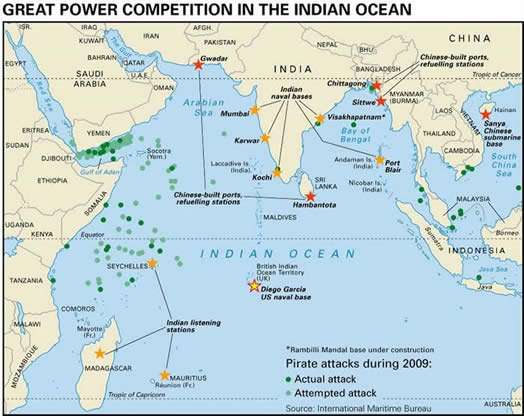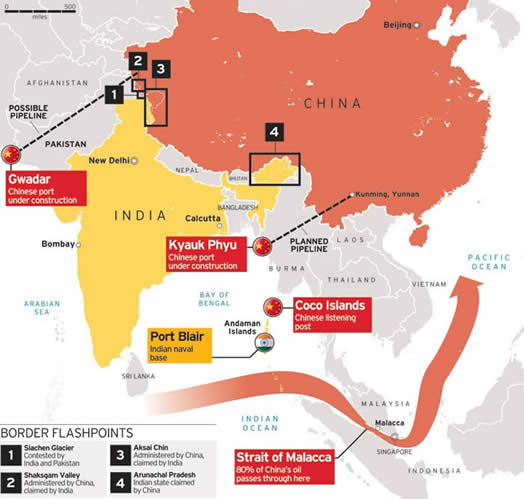The EU released a report officially declared that Sri Lanka has failed to meet all of the stipulations necessary to receive the GSP+ benefits on account of its poor human rights record. The GSP+ confers extra subsidies on Sri lanka exports to EU countries. The West is a huge importer of Sri Lankan goods, and this is a significant action that has made Colombo take notice. None of the words from these same people during the bloody round of fighting had much effect, and tens of thousands of Tamils died as a result.
But currently, merely saying that Sri Lanka fails to meet the requirements of GSP+ means little. There was much negotiation about the IMF loan earlier this year. It lasted months, and had strong input from the US and Britain that the loan should be tied to an improvement in human rights. Sri Lanka was having none of this, and delcared the loan be given on its own terms, i.e. no conditions. But eventually, the loan went through. As it has been said elsewhere, we can't assume that there will be follow-through on the needful.
After all, didn't India author its current fate, to an extent, by being so bent on defeating the Liberation Tigers, and now, after their defeat, Sri Lanka has given itself over to powerful forces in the world with lesser scruples. There is no counterweight to the Sinhalese majority. The government's power is derived from island-wide voting in which half of the Sinhalese (75%) vote can muster 50% of the seats, and have control over 100% of the island. It has never paid to be a minority, and any rights have been usurped long ago, and violently, "legally" through the police and army which both became 99% Sinhalese deacdes ago. So in the absence of the Tigers, it should be no surprise that Tamils and Muslims alike, including those who were not supporters of the LTTE and its tactics, now feel defenseless and regret the loss of the LTTE. The LTTE didn't represent the Muslims enough for them to feel included. Also, the SL government did a good job in ensuring that through its covert operations to ensure divide-and-conquer between the Tamils and Muslims, especially in the East, which is why the SL government killed Kaushalyan, the LTTE political wing leader for Batticaloa-Amparai in the East. He was a popular and amicable person who was doing a good job to bridge the Tamil and Muslim communities in the East, especially after the Tsunami. Muslims know that they're the next target of the government, and no minority is safe. Even Sinhalese Christians are not safe.
India has been so fixated with this bogus "greater Tamil Eelam-Nadu" theory that is part of the so-called "M. K. Narayanan Doctrine", that it has let China slip entirely through the backdoor in Sri Lanka. Sri Lanka has been figuratively described as India's "backyard", and now the day has officially arrived, as today Chinese naval sailors roam the Sri Lankan waters. If we need a good detailed play-by-play to understand accurately how this evolved over the last 2 years, the article from Global Research Great Power Confrontation in the Indian Ocean seems quite useful. Better yet are the maps showing:


And so the last 2 years are well documented, well mapped, well understood, and regretted. Does anyone remember the incident during the 2002-03 Peace Process when a Chinese fishing trawler was blown up and blamed on the Tigers? What was that about? What were Chinese people (civilians, as the SLMM declared in their statement) doing, fishing in Sri Lankan waters, literally? Off the coast of Mullaithivu, interestingly, which is where the final events of the war took place. According to the SLMM report, all signs point to the LTTE specifically attacking this ship, and deliberately with force. In hindsight, we can surmise that more was going on in the Chinese boat in the darkness of 5:00 am than fishing or a tour, thousands of miles away from any Chinese dock or outpost. So did the LTTE know something about China back in 2003, that we didn't know? If so, this would explain the many overtures by the Tigers to India since 2002 to forget the past and work together. Regardless of the hypotheticals, the results appear quite clear.
The Lesson?
"What experience and history teach is this — that people and governments never have learned anything from history, or acted on principles deduced from it."
- Georg Wilhelm Friedrich Hegel, from Lectures on the Philosophy of History (1832)
Buried in the above text, there are, I hope, a lesson or two. We can see how dogmatically sticking to failed doctrines and policies by superpowers in the past decade are self-defeating, especially on the basis of wrong intelligence or as the result of no intelligence. Secondly, Sri Lanka is set up to deny minorities their rights whenever possible, and thus to be drawn into never-ending strife, except when coerced to do otherwise, such as in the face of local organized resistance. Sri Lanka has been able to get what it wants, whether it is turning a censure of its human rights record in the UN Human Rights Council into a laudatory one, or the acceptance of an IMF loan with no major string attached. The more Sri Lanka bullies, the more it gets for no real work done.
And now the question arises as to where the GSP+ comes into this. There is uncertainty about whether the EU will indeed retract GSP+ benefits. Not because there is any uncertainty over Sri Lanka's human rights record or intentions. But I imagine there to be some hesitation that the carrot-and-stick (loan dependency and blackmail of withdrawal) approach that has worked like a charm for the West for so long might be ineffective, given that Sri Lanka is following the shoot-self-in-foot policy. According to the Governor of the Central Bank, Ajith Cabraal, even the loss of GSP+ meaning a 6-7% higher is okay because the SL rupee depreciates at a 14-18% rate to Western currencies anyways. No need for support, because it's not the end of the world. This position is only possible because a country supportive like China has the money to pick up the slack. Yet Sri Lanka has made lots of gains in the past year with a lot of empty talk -- the wonderful prosecution of the war, the treatment of Tamils, the bright future for the economy and country, the pledge to respect human rights, the promises made to every ally and foe. It is through this talk that they get something for nothing, like weapons, intelligence, troops, and money, especially from India. India is getting a bloody, red mark in return. India's carrot-and-stick approach didn't work this time because Sri Lanka is using the China card as leverage. This is the final lesson to be learned, that the right thing to do cannot happen if the China bluff fails to be called by the West and its allies.
If Sri Lanka will devalue its currency, it will impoverish itself and become a poorer, less useful country. How much money will China waste before the inevitable turmoil in Sri Lanka throws a spanner in China's port-building designs? The Tigers have long penetrated Sri Lankan security, which is expensive to upgrade and maintain. China has no need for Sri Lankan textiles or tea when it can produce these for cheaper. China can bail out Sri Lanka only for so long before it must start receiving dividends to justify the payments. Or, China can try, and dwindle its reserve money, and thus its bargaining power in the world, in the process. And so, if the West calls China and Sri Lanka's bluff on what economic sanctions will do for Sri Lanka, then there will be some change. But like with the Apartheid regime in South Africa, we must consider further actions like kicking Sri Lanka out of the Commonwealth until it fully understands, sooner rather than later, that its current system is inhumane and needs to be dismantled for truth and reconciliation to happen, however that must be.


No comments:
Post a Comment